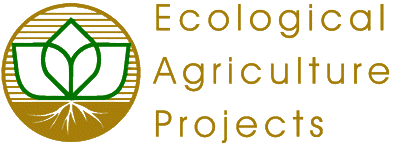

EAP Publications | Virtual Library | Magazine Rack | Search
Join the Ecological Solutions RoundtableIt's definitely a space age approach to efficient application of fertilizers and pesticides. Known by a number of names — computerized patch spray programs, Global Positioning Systems (GPS) spraying, precision farming — this approach to farming relies on sophisticated computer programs and satellite technology to determine how to spray and spread agrochemical efficiently.
They use traditional field monitoring, aerial photography and image analysis of maps, to identify precisely where pest and fertility problems exist. The data are collected and stored in an on-tractor computer that controls the sprayer or fertilizer spreader. When the tractor's position, speed and movement is entered, using signals from stationary satellites received through a small dish located on the top of the tractor, the computer is able to compare against the map, and dispense pesticides and fertilizers in accordance with the data collected. To effectively use such technology usually requires thousands of farmed acres. Such systems can produce significant reductions in fertilizer and pesticide use when compared to traditional single rate/field application.
More efficient use of pesticides and fertilizers can lead to some environmental improvements in the short term, but:
Ecological farmers, operating on smaller scales, gather much of the same ecological data used in precision farming, and know where certain pests thrive and fertility changes. But they collect the data in different ways, relying more on ecological wisdom than elaborate testing and don't usually use computers to interpret the data. Precision farmers are operating on such a grand scale, however, that it is virtually impossible to analyze the data, and apply agrochemical according to its results, without the use of such high technologies.
Unfortunately, even more disturbing applications of precision-type farming are on the horizon. There are reports, for example, of robotic weeders that run up and down rows searching for weeds. Early indications are, however, that a robot's ability to distinguish the weed from the crop is limited because of similar shapes and colours. The solution proposed - use genetic engineering to change the colour of crops, creating, for example, purple tomato stems.
Ultimately, then, precision farming only takes farmers part way towards sustainable agriculture. It fails to address the root causes of the pest and fertility problems and compromises efforts to move to more profound stages of sustainability.
Copyright © 1997 Ecological Agriculture Projects
Info Request | Services | Become EAP Member | Site Map
Give us your comments about the EAP site
Ecological Agriculture Projects, McGill University (Macdonald
Campus)
Ste-Anne-de-Bellevue, QC, H9X 3V9 Canada
Telephone:
(514)-398-7771
Fax:
(514)-398-7621
Email: eapinfo@macdonald.mcgill.ca
To report problems or otherwise comment on the structure of this site, send mail to the Webmaster